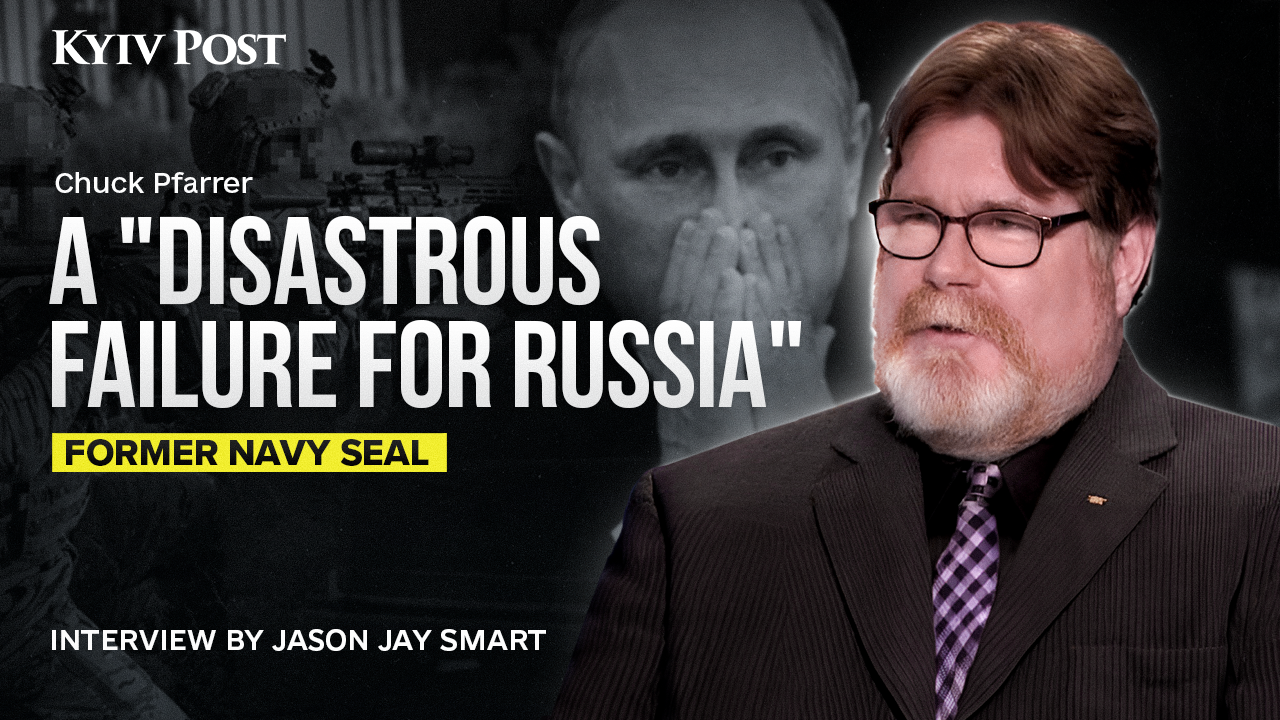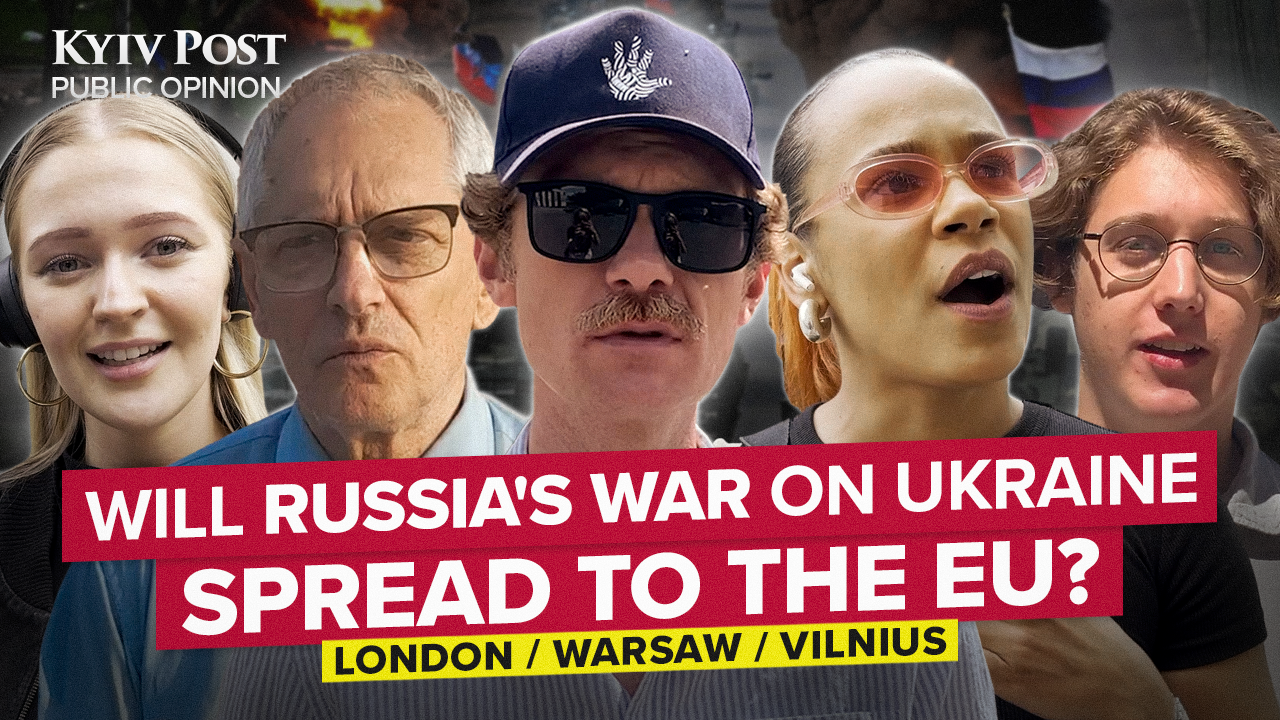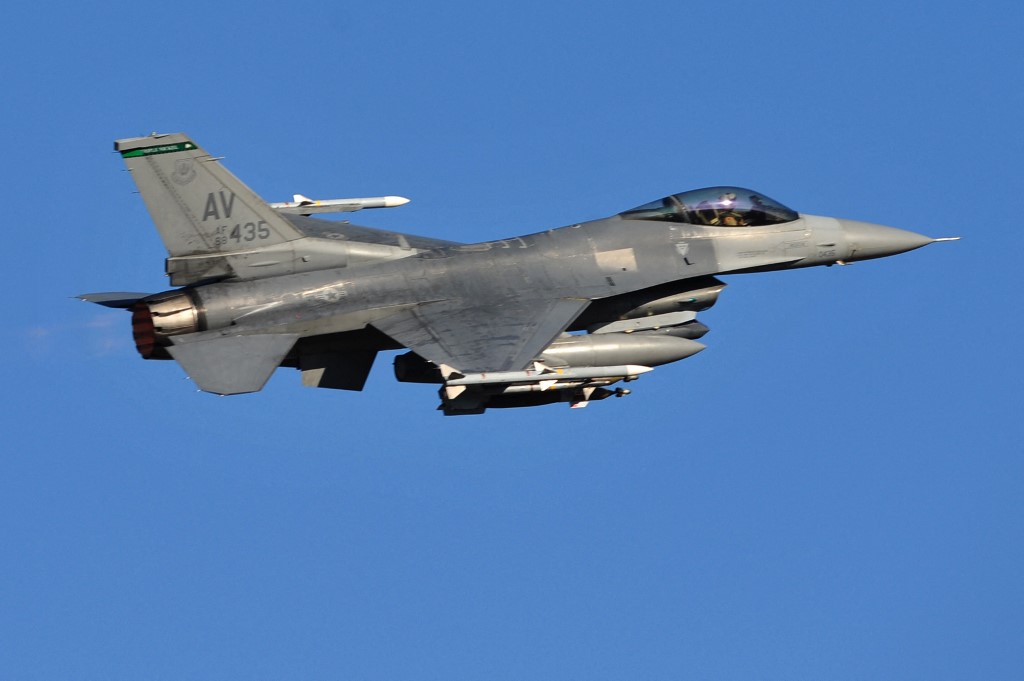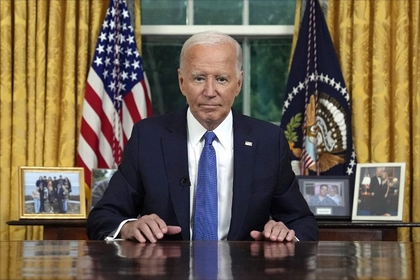For those who don’t remember: Chicken Kiev (as it was spelled at the time), in the context of geopolitics, refers to an Aug. 1, 1991 speech by then-US President George H.W. Bush in the capital of what was still the Ukrainian Soviet Socialist Republic.
The Berlin Wall had fallen nearly two years earlier; East and West Germany had only been reunified for eight months. Independence movements were stirring within the Soviet Union, particularly in the Baltic states and Ukraine.
JOIN US ON TELEGRAM
Follow our coverage of the war on the @Kyivpost_official.
President Bush had come to the USSR essentially to support Mikhail Gorbachev’s programs of glasnost and perestroika. So he made a side trip to Kyiv to warn Ukrainians about “suicidal nationalism,” suggesting that the best, most pragmatic course for Ukrainians would be to hew to Gorbachev’s center and tread lightly with their aspirations for freedom.
In short, Bush was worried about the Soviet Union falling apart and getting drawn into a chaotic conflict. As such, he backed Gorbachev’s “policies of glasnost, perestroika, and democratization” which “point toward the goals of freedom, democracy, and economic liberty.”
Seventeen days after Bush’s speech, Communist hardliners mounted a coup d’état and sequestered Gorbachev, who was vacationing at his Crimean dacha.
The coup failed almost immediately. Gorbachev was disgraced. Boris Yeltsin took the reins of power. Exactly 23 days after the Chicken Kiev speech, Ukraine declared independence. By New Year’s Day of 1992, the USSR had officially ceased to exist.

How President Harris Would Handle US Foreign Policy in Europe and Asia
Unfortunately, Blinken’s maladroit circumlocution testified to the Biden administration’s own Chicken Kiev complex.
Blinken’s “Rockin’ in the Free World” visit
Fast-forward 32-plus years and Ukraine is now witnessing a poignant reiteration of that Chicken Kiev episode.
Against the background of an existential threat posed by a revanchist Moscow which has proven in no uncertain terms that it wants to eliminate any semblance of a free and sovereign Ukraine, America is again reluctant to help Kyiv for fear of Russia descending into chaos.
US Secretary of State Antony Blinken came to Kyiv for a brief visit this past week. He gave a speech with much praise for Ukrainian courage and resilience. He reiterated the rhetoric of President Joe Biden’s wanting Ukraine to “win” (of course, without defining what “winning” might mean; and since Biden and his acolytes have already said that Ukraine “has already won” it leaves us semantic watchdogs rather dissatisfied). But in the same speech, after a litany of niceties, Blinken basically scolded Ukraine about its endemic corruption. (Voices in Kyiv say he read Zelensky the riot act in private and told him that the White House wants this war over by the election in November – but, then again, Kyiv is full of voices these days.)
Later in the evening, Blinken – that staunchest of Ukraine supporters among Biden’s ambivalent-with-regard-to-Kyiv inner circle – played guitar at a night club, jamming with a local band. He sang “Rockin’ in the Free World,” by the great Canadian singer-songwriter Neil Young: “We got a kinder, gentler machine-gun hand…”
Then came the very cringe-worthy May 15 press conference, with Blinken squirming and jotting down notes to help him avoid saying anything unpleasant. He was asked twice about Washington’s insistence that Ukraine not use any US-provided weapons to strike Russian territory. For a little background: Russia’s current Kharkiv offensive could have been summarily blunted had Ukraine been able to use US-made ATACMS with cluster munitions on Russian troop concentrations just over the border.
Unfortunately, Blinken’s maladroit circumlocution testified to the Biden administration’s own Chicken Kiev complex.
First, Blinken repeated that America was “committed to helping ensure Ukraine winning this war” – which means nothing since the Biden administration has already defined the current situation as a win. When Ukrainian President Volodymyr Zelensky last visited Washington, Biden stood next to him and said: “For you to be here today, again, today, nearly two years later [after Feb. 24, 2024] and for Ukraine to be staying strong and free, is an enormous victory already.”
Then Blinken spouted the formulaic: “We have not encouraged or enabled strikes outside of Ukraine, but ultimately Ukraine has to make decisions for itself.”
When pressed again about the possibility of letting Ukrainians hit Russian territory with US-made arms, in sync with Britain’s policy, Blinken deflected the question: “Again, we are determined that Ukraine win this war and succeed for its people and for its future. We’ve been clear about our own policy, but again, these are decisions that Ukraine has to make, Ukraine will make for itself. And we’re committed to making sure that Ukraine has the equipment it needs to succeed on the battlefield.”
Translated from diplomat-speak, “win” and “succeed” mean the situation on the ground today, with Ukraine de facto renouncing its lost territory. And “battlefield” – a crucial word in this context – means not Russia proper. In other words, the handcuffs are still on.
If there was any doubt about what Blinken meant – since many news outlets jumped the gun and interpreted Blinken’s comments as a green light – then that was clarified the following day at the Pentagon.
The question, verbatim, to Pentagon Deputy Press Secretary Sabrina Singh was: “So, we’ve heard a number of times from the US officials that [the] US does not want Ukraine to strike targets inside Russia with American weapons. In the wake of [the] Russian offensive and attacks on Kharkiv, does [the] US consider changing that approach? Because that’s what Ukrainians are asking for. It’s very difficult for them to respond to these attacks that come literally from across the border when Russians know that they can basically be safe there.”
The somewhat oxymoronic response was: “Yeah, we haven’t changed our position. We believe that the equipment, the capabilities that we are giving Ukraine, that other countries are giving to Ukraine should be used to take back Ukrainian sovereign territory.”
When asked to clarify whether the handcuffs were a “request” or a “binding condition,” the Pentagon press secretary said: “Again, I would reiterate that, in every single Ukraine defense contact group that the [US] Secretary [of Defense] convenes, the weapons that are provided, again, it’s for use on the battlefield. And the Secretary, in his conversations with [Ukrainian Defense] Minister Umerov, talks through how best those capabilities can be used, and we believe that is within Ukrainian territory.”
Translation: Don’t hit Russian territory with US weapons. “Battlefield” here means “Ukrainian sovereign territory.”
This approach to limiting Ukraine’s ability to inflict damage on the army trying to annihilate it is entirely consistent with what the “Russia experts” in the Biden administration are lobbying for: cut a deal with Moscow; keep Russia from falling apart; pressure Kyiv to cut its losses.
The approach is also entirely consistent with Bush Sr.’s Chicken Kiev speech.
It only took 17 days for the personality of Boris Yeltsin to put the kibosh on Bush’s principled liberal-democratic pabulum.
America’s idealist pragmatists
In all fairness to George H.W. Bush, if one reads the Chicken Kiev speech in its entirety, one has to admit that it is a remarkable work of rhetoric exalting the pragmatic American tradition of enabling liberal democratic ideals to flourish.
For example, the quote about “suicidal nationalism” is skillfully qualified in the full text: “Americans will not support those who seek independence in order to replace a far-off tyranny with a local despotism. They will not aid those who promote a suicidal nationalism based upon ethnic hatred.”
What liberal democrat in his or her right mind would support any nationalism “based upon ethnic hatred”?
The rest of the speech is an eloquent testimony to that levelheaded, rational approach to geopolitics that characterized Bush Sr. and a host of American political figures from George Washington to the Roosevelts to Biden. And Biden has surrounded himself with eminently competent professional diplomats and political technicians like CIA Director William Burns and National Security Advisor Jake Sullivan, who either know Russia well or rely on the wits of Russia specialists like Samuel Charap and others in the ivory tower shelters of Thinktankdom.
But Bush Sr. was laughably wrong in his assessment. In his speech he said: “We will determine our support [for the stable Soviet center as opposed to the reckless independent republics] not on the basis of personalities but on the basis of principles.” It only took 17 days for the personality of Boris Yeltsin to put the kibosh on Bush’s principled liberal-democratic pabulum.
And now the current Biden administration is laughably wrong in its scarcely veiled drive to contain Vladimir Putin without letting Russia fall apart.
Geopolitics has one hard and fast law: All empires come to an end.
The dissolution of the USSR was the death rattle of the Russian Empire. The US thought it had won the Cold War definitively, that the “end of history” had arrived, or at least was nigh. Whereas Putin thought otherwise; he saw it as a “catastrophe” that necessitated a tactical retreat. Now he’s on the offensive again. And the US must face the implacable reality of the Russian Empire’s death throes courageously, without the mealy-mouthed hedging found in Chicken Kiev’s rhetoric.
Negotiations with Putin on Putin’s terms – i.e., “what’s mine is mine and what’s yours is negotiable” – may seem pragmatic. But it’s only as pragmatic as trying to placate a rabid game-bred pit bull with a doggie biscuit.
And for those who think Donald Trump might somehow cut a better deal than the Biden administration, that his personality will supersede the principles he is bereft of, let’s remember that Trump is the most principled of human beings, and his highest principle is himself. He will sacrifice Ukraine and America in a heartbeat if it serves his greater glory.
Like the Soviet Union, the Russian Empire will disintegrate, and the United States will need to fully commit to its rhetoric rather than play safe behind the guise of some speechwriter’s pretty rhetoric or a representative’s cringe-worthy dissembling.
The alternative is nothing less than the end of the liberal-democratic order.
You can also highlight the text and press Ctrl + Enter









